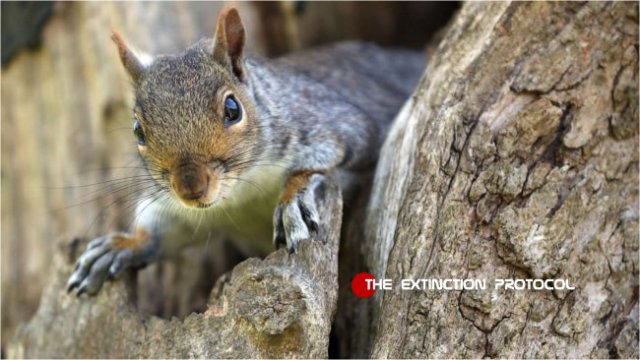
Public health officials have announced that a squirrel in Colorado has tested positive for the bubonic plague. The town of Morrison, Colorado, in Jefferson County, which is just west of Denver, made the startling announcement saying that the squirrel is the first case of plague in the county. “Plague is an infectious disease caused by the bacteria Yersinia pestis, and can be contracted by humans and household animals if proper precautions are not taken,” officials from Jefferson County Public Health (JCPH) said in a statement released to the public.
It is possible for humans to be infected with the bubonic plague through bites from infected fleas and by direct contact with blood or tissues of infected animals such as a cough or a bite. Jefferson County Public Health said that cats are highly susceptible to the plague from things like flea bites, a rodent scratch or bite, and ingesting an infected rodent. Cats can die if not treated quickly with antibiotics after contact with the plague.
Officials also said that dogs are not as susceptible to the plague as cats are but still may pick up and carry plague-infected rodent fleas. Any pet owner who suspects that their pet is ill should contact a veterinarian immediately. “Symptoms of plague may include sudden onset of high fever, chills, headache, nausea and extreme pain and swelling of lymph nodes, occurring within two to seven days after exposure. Plague can be effectively treated with antibiotics when diagnosed early. Anyone experiencing these symptoms should consult a physician,” said JCPH.
Risk for contracting the bubonic plague is extremely low as long as the proper precautions are taken and JCPH published a list of them including eliminating all sources of food, shelter and access for wild animals around the home, not feeding wild animals, maintaining a litter and trash-free yard to reduce wild animal habitats, having people and pets should avoid all contact with sick or dead wild animals and rodents, using precaution when handling sick pets and having them examined by a veterinarian, consulting with a veterinarian about flea and tick control for pets and keeping pets from roaming freely outside the home where they may prey on wild animals and bring the disease home with them. –ABC News

Comments
Post a Comment